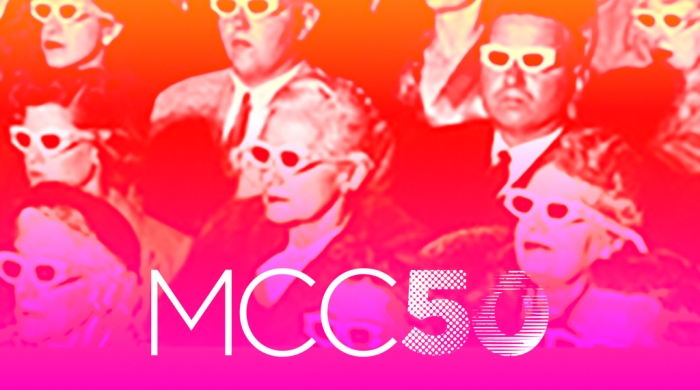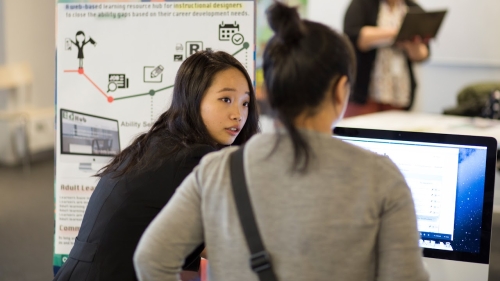This virtual event was sparked by Assistant Professor Laine Nooney’s book, The Apple II Age: How the Computer Became Personal.
On April 4, NYU Steinhardt hosted a virtual roundtable on how a historical reconsideration of the development of the computer industry could dismantle some long-held assumptions about technology today.
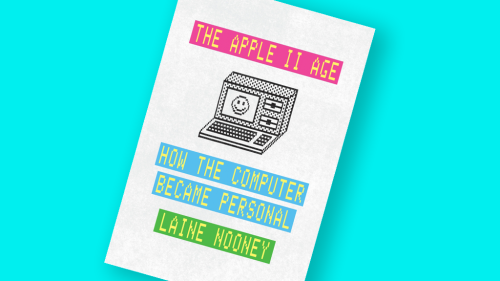
“Computer Pasts/Computer Futures” was sparked by The Apple II Age: How the Computer Became Personal, the latest book by Laine Nooney, assistant professor of media, culture, and communication at NYU Steinhardt. The book details the history of how the 1977 Apple II became one of the most prominent personal computers of this dawning industry.
Participants included provocative thinkers and writers, including Charlton McIlwain, NYU’s vice provost for faculty engagement and development and professor of media, culture, and communication at Steinhardt; Cory Doctorow, blogger, journalist, and science fiction author; and Malcolm Harris, editor at The New Inquiry and author of Kids These Days: The Making of Millennials.
“A lot of us here have written and talked about the history of technology as a pushback or correction to generate an understanding of how we got here, but there can be some limits to this counternarrative,” said Joanne McNeil, moderator of the event and author of the novels Wrong Way and Lurking. “Sometimes in history, you end up reinforcing the narrative you’re trying to expand, if not disprove. With this panel grounded in history, maybe we can get a more interesting take to see what other possibilities are out there.”
“When given the opportunity to think about putting together this panel, I was attracted to people whose work I am inspired by, but also who are better than I am at connecting historic critique and possible futures,” said Nooney during the event. “When thinking about the alternative view of the history of computing in The Apple II Age, people absorb it in several different ways. However, I think I know the book has succeeded when I hear white men say that it fundamentally changed their personal identification with the way technology shaped their lives.”
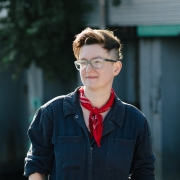
When given the opportunity to think about putting together this panel, I was attracted to people whose work I am inspired by, but also who are better than I am at connecting historic critique and possible futures.
Panelists also discussed topics such as the situation with and perception of “new tech” like artificial intelligence; the CHIPS and Science Act, which authorizes roughly $280 billion in new funding to boost U.S. research and manufacturing of semiconductors; and where they’d love to see conversations about technology going.
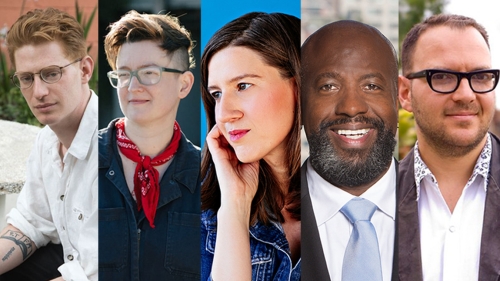
Malcolm Harris, Laine Nooney, Joanne McNeil, Charlton McIlwain, Cory Doctorow
“When working on my own book [Black Software: The Internet & Racial Justice, From the AfroNet to Black Lives Matter], I started out narrowly trying to understand the issues around technology and social justice movements,” said McIlwain. “Through the course of my investigation, I realized that the much bigger issue is having to reset or rebalance our framing: instead [of] centering technology and following that narrative, [centering] the people behind it and what came before or after. By reorienting our gaze to say that our technology systems’ new innovations are entering an existing world that is permeated by discrimination distracts us from a larger context that first needs to change to allow the figures within it to reflect that change.”
Nooney is currently working on their second book about Sierra On-Line, a historic computer game company of the late 20th century, and its local labor history.
Related Articles
MCC Student Helps Lead Violets to NCAA Championship Win
Guard Honor Culpepper (’24 MCC) and the team landed a 51-41 victory against Smith College on March 16, 2024.
Alexa, Am I Happy? How AI Emotion Recognition Falls Short
As AI systems learn to detect emotions, a Media, Culture, and Communication professor says their unreliable methods and limitations are cause for concern.
50 Years of Media Studies at NYU Steinhardt
The Department of Media, Culture, and Communication celebrates 50 years since Neil Postman founded the Media Ecology program, launching media studies at the university.
Related Programs
Related Department
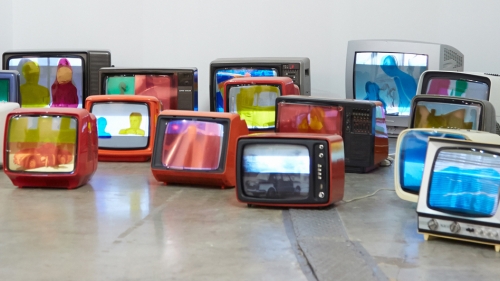
Media, Culture, and Communication
239 Greene Street, 8th floor
New York, NY 10003
212-998-5191 | contact


